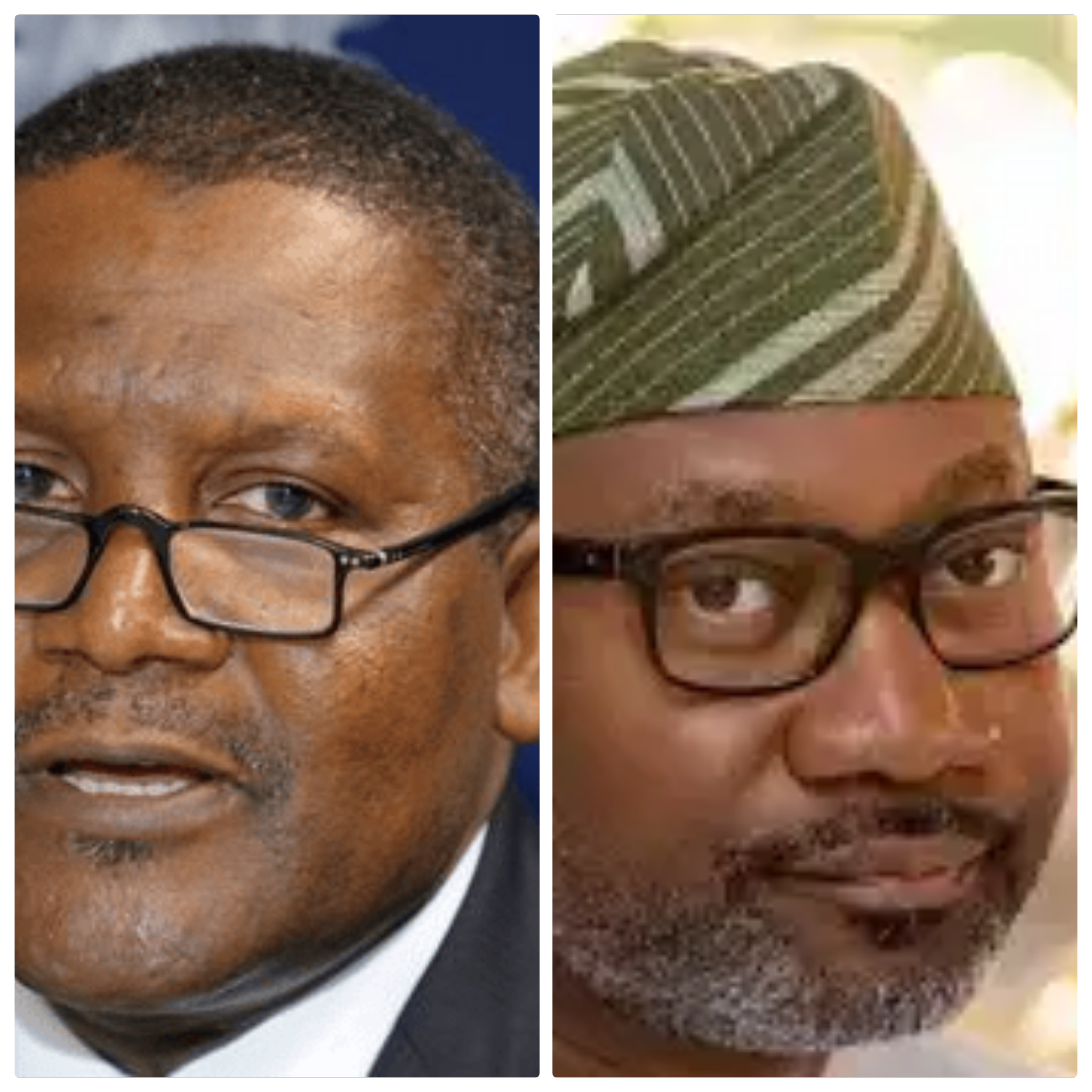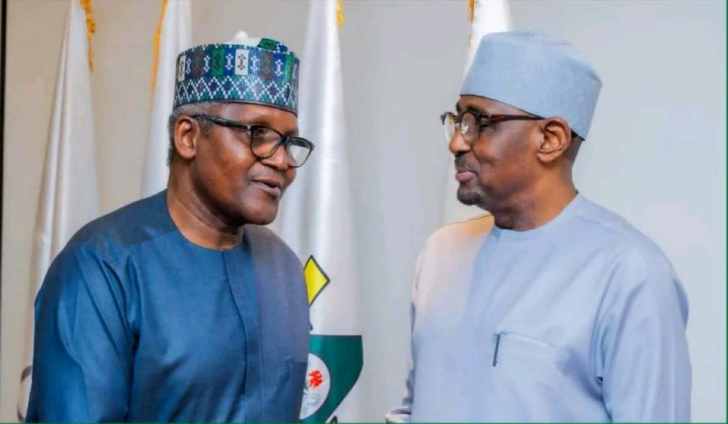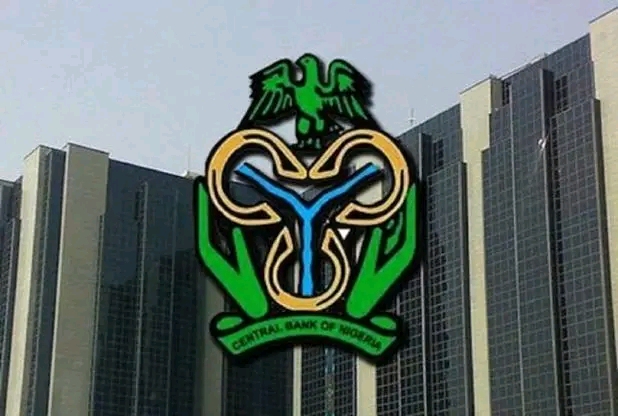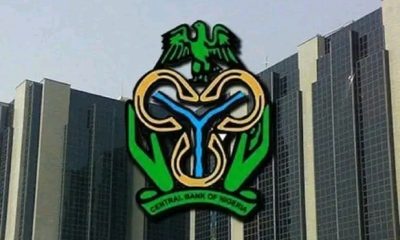Economy
High Interest on Loans Affect Economic Progress, says Dangote

IduwiniVoice
High Interest on Loans Affect Economic Progress, says Dangote
By Tobouke JEMINE
Yesterday, Aliko Dangote, President of Dangote Industries Limited, highlighted the negative impact of high interest rates on job creation and economic growth in Nigeria.
During his keynote address at the National Manufacturing Policy Summit organized by the Manufacturers Association of Nigeria (MAN) in Abuja, Dangote warned that the Central Bank of Nigeria’s 26.25% interest rate would cripple the manufacturing sector and hinder economic progress.
At the same summit, Vice President Kashim Shettima, chair of the National Economic Council (NEC), affirmed the Federal Government’s commitment to collaborating with MAN to develop a comprehensive roadmap and policy framework for the manufacturing sector.
In May, the CBN raise interest rate from 24.75 per cent to 26. 25 per cent.
Dangote said businesses cannot not cope with the current rate, adding: “Nobody can create jobs with an interest rate of 30%. No growth will happen.”
He also decried the penchant for importation of goods and services, saying it is a harbinger of poverty.
Dangote said: “Import dependence is equivalent to importing poverty and exporting jobs. No power, no growth, no prosperity. Similarly, no affordable financing, no growth, no prosperity. There is no industrialization without protection. Ignoring these facts is what gives rise to insecurity, banditry, kidnapping and abject poverty.”
He urged government to rethink its industrialization policy and provide necessary support and protection to the manufacturing sector, emphasizing that industrialization is key to sustainable economic growth and development.
Dangote highlighted the importance of manufacturing in driving economic diversification, job creation, and foreign exchange generation.
He said the manufacturing sector has declined over the years, resulting in significant import dependence and poverty.
Dangote cited examples of how Asian countries achieved industrialization by protecting and supporting local companies, attracting foreign investment, and creating competitive industries.
He maintained that government’s protection and support are crucial for the long-term survival and growth of industries, citing the success of Nigeria’s cement industry as an example.
Dangote stressed: “There are, no doubt, many causes for failure of our manufacturing sector to meet the expectations of our people. Let me use a personal example to illustrate.
“It is now an established fact that industrialisation is an inescapable route to sustainable and inclusive economic growth and human development.
Dangote Industries Ltd. confirms minor fire outbreak at its refinery
“I believe we all know the critical role that manufacturing plays in the modern economy, especially its impact on other sectors through various linkages; job creation; economic diversification & FX generation; government revenues; technology transfer/adaptation and Innovation.
“Manufacturing remains a key driver in a nation’s quest for economic development and self-sufficiency. It is easy to determine the level of economic development, growth, and wellbeing of a nation by observing its manufacturing sector.
“It is evident that the strength of a country’s manufacturing sector determines its capacity to compete in global trade of which 70% is in manufactured goods, according to available statistics.
“Countries that have industrilised and have a robust manufacturing sector and are able to export manufactured goods are generally able to grow their economies through global trade.”
Economy
ALIKO DANGOTE IS A TITAN THAT GOD CREATED SPECIALLY FOR MANKIND – FEMI OTEDOLA

ALIKO DANGOTE IS A TITAN THAT GOD CREATED SPECIALLY FOR MANKIND – FEMI OTEDOLA
By Tobouke JEMINE
Following the recent dispute between the Dangote Refinery and some regulatory agencies, the Nigerian business mogul , philanthropist, former chairman of Forte Oil PLC, and current executive chairman of Geregu Power PLC, has punched in in defence of Aliko Dangote.
Read his reaction below:
My brother, the Visionary, has built the largest single train refinery in the world, not in Kano, but in Lagos State. He is the owner of the second-largest sugar refinery in the world, also in Lagos State, and the largest cement factory in the world, not in Kano, but in Kogi State.
Additionally, he has established one of the second-largest fertilizer plants in the world, soon to surpass the biggest one in Qatar, also in Lagos State. Furthermore, he has built a fertilizer plant in Lagos that already exports globally. Aliko Dangote is a titan that God created specially for mankind.
Aliko Dangote is also the largest private sector employer of labor in the country, and his companies are among the largest taxpayers. In fact, the Dangote Group often pays more in taxes than the top banks combined.
If not for him, we would still be importing cement. His contributions extend beyond industrial facilities to critical infrastructure, having built major roads such as the Apapa Oshodi-Owonrosoki Express Road, Wharf Road, and the Obajana-Kabba Road.
Countries in the nascent stages of industrialization require visionary leaders. This is why it’s no surprise that the United States was built by the vision and tenacity of a few remarkable individuals—Cornelius Vanderbilt, John D. Rockefeller, Andrew Carnegie, J.P. Morgan, and Henry Ford—THE MEN WHO BUILT America’s industrial landscape.
These men left the world without these assets but left behind a legacy that has kept their country thriving generation after generation. Their contributions were immortalized not in the material wealth they amassed but in the enduring institutions and industries they established. These visionaries were also supported by their government, which recognized the importance of fostering local champions.
Similarly, today’s tech giants like Microsoft and Tesla received substantial support from the US government. For example, in January 2010, the Department of Energy issued a $465 million loan to Tesla Motors to produce specially designed, all-electric plug-in vehicles and to develop a manufacturing facility in Fremont, California to produce battery packs, electric motors, and other powertrain components for powering these innovative vehicles. This initiative is part of broader efforts, such as the federal EV-charging program supported by the infrastructure law known as the National Electric Vehicle Infrastructure program, or NEVI.
In India, the government has been instrumental in supporting business titans like Gautam Adani and Mukesh Ambani. Their companies have received significant backing to grow and expand, contributing substantially to India’s economic growth and global business footprint.
There are also records of emerging market countries like Vietnam, South Africa, Brazil, and China where their governments have supported local businesses to jump-start industrialization. In Vietnam, the government has provided various incentives to tech companies, fostering a rapidly growing technology sector.
In South Africa, government support for the mining industry has been crucial in maintaining its global competitiveness. Brazil has seen substantial government investment in its agricultural sector, transforming it into one of the world’s leading food exporters. In China, government backing for companies like Huawei and Alibaba has propelled them to global leadership in technology and e-commerce.
In Nigeria, we have our own titans, and it is imperative that we recognize and support them. Aliko Dangote has broken every boundary in worldwide business and industry. His contributions are not just a testament to his brilliance but a beacon of what is possible when vision meets opportunity. Supporting local champions like Dangote is crucial for our national development and economic independence. Let us continue to foster and support these visionaries who drive our nation’s progress…
Economy
REPS CALL FOR SUSPENSION OF NMDPRA BOSS OVER ALLEGATIONS AGAINST DANGOTE REFINERY

REPS CALL FOR SUSPENSION OF NMDPRA BOSS OVER ALLEGATIONS AGAINST DANGOTE REFINERY
By Tobouke JEMINE
The House of Representatives has called for the suspension of Farouk Ahmed, CEO of the Nigerian Midstream and Downstream Petroleum Regulatory Authority (NMDPRA), pending an investigation into his statements about Dangote Refinery.
This decision follows a motion by Esosa Iyawe, representing Esosa Federal Constituency, Edo State. Iyawe highlighted concerns over fuel quality in the Nigerian market, emphasizing the impact of high sulphur content on engines and pollution.
Contrary to Farouk’s claims that Dangote’s diesel is inferior with high sulphur content, tests showed Dangote’s diesel has significantly lower sulphur levels compared to imported diesel.
Lawmakers criticized Farouk’s statements and are investigating his allegations and the presence of middlemen in crude trading.
Economy
CBN TO BANKS: Transfer Funds in Dormant Accounts/ Unclaimed Balances to Us

IduwiniVoice
By Tobouke JEMINE
The Central Bank of Nigeria (CBN) has directed all banks and other financial institutions to transfer funds in all dormant accounts to the apex bank.
A circular issued by CBN Ag. Director of Financial Policy and Regulations, Mr. John Onoja, yester night revealed that accounts that have remained untouched for 10 years and above would be affected.
It said, “The provisions of this guideline shall apply to all financial institutions under the purview of the Central Bank of Nigeria.”
According to the circular, the objectives of this move, among others, were to identify unclaimed balances in dormant accounts, and financial assets with a aim to reuniting them with their beneficial owners; keep the funds in trust for the beneficial owners; standardize the management of dormant accounts and unclaimed balances, and financial assets; establish a standard procedure for reclaiming warehoused funds.
It added, “Eligible accounts are dormant account balances that have remained with the FIs for a period of ten (10) years and beyond.
“Eligible dormant accounts/unclaimed balances and other financial assets shall include: current, savings, and term deposits in local currency; Domiciliary accounts; deposits towards the purchase of shares and mutual investments; and prepaid card accounts and wallets.
“Government Owned Accounts; Proceeds of uncleared and unpresented financial instruments belonging to customers or non-customers of FIs; Unclaimed salaries and wages, commissions, and bonuses; Proceeds of stale local and/or foreign currency drafts not presented for payment by beneficiaries; Funds received from a correspondent bank without sufficient details as to the rightful beneficiary and/or a recall of funds made to the remitting bank to which the Nigerian bank account had not been debited.
“A judgment debt for which the judgment creditor has not claimed the amount of judgment award; and any other deposits or financial assets that may be designated by CBN.”
According to the CBN, the following classes of dormant accounts/financial assets are exempted: Accounts that are subject of litigation; A judgment debt for which the judgment creditor has not claimed the amount of judgment award and the case is still active in court; Accounts under investigation by a regulatory authority or law enforcement agency; and encumbered accounts, including, but not limited to, collateral and loans.
© Source: 2024 Vanguard Media Limited, Nigeria


